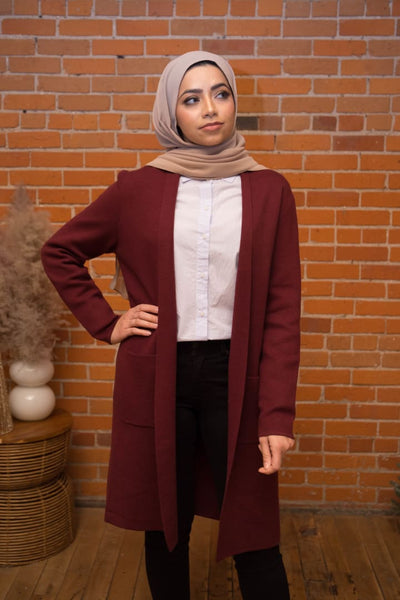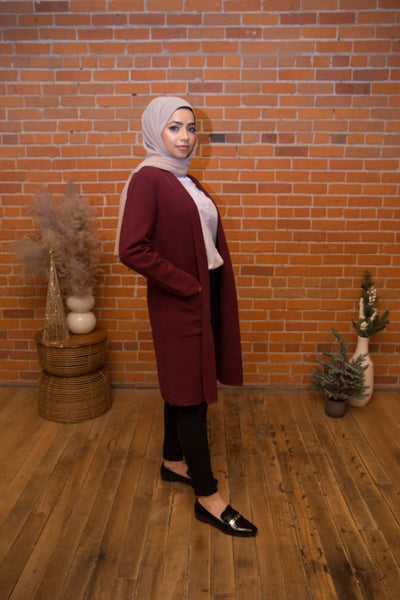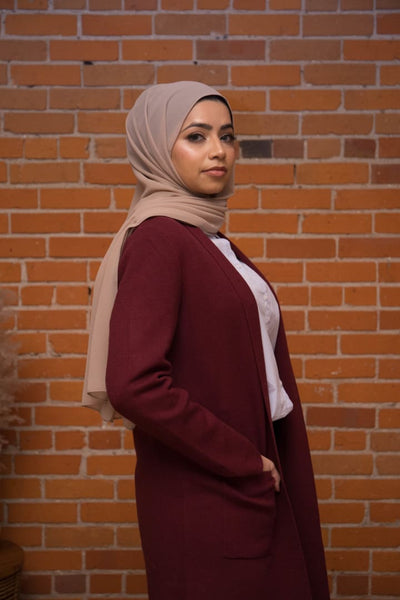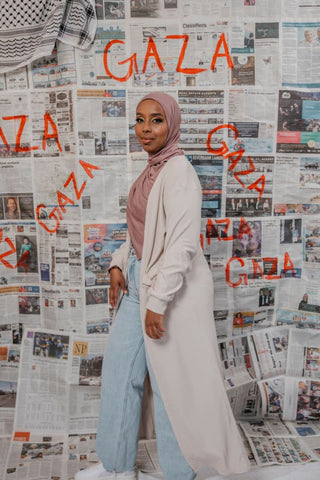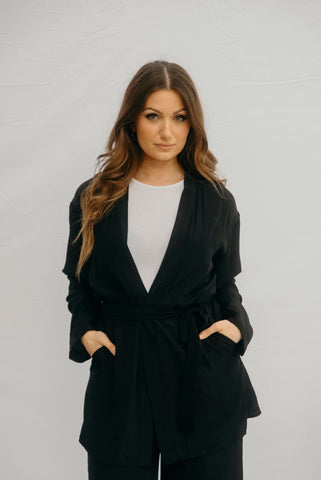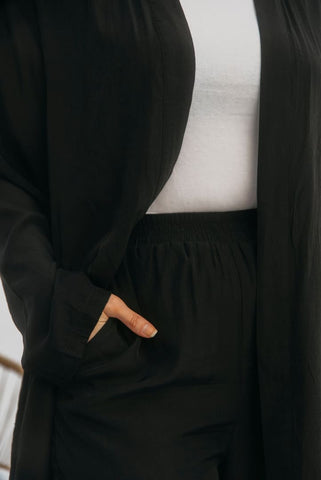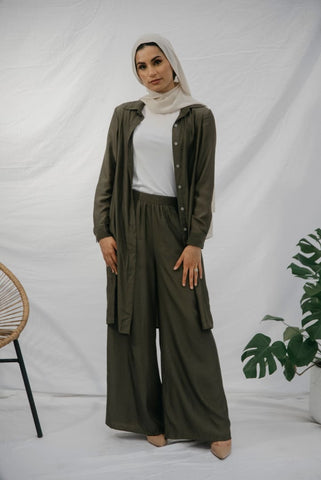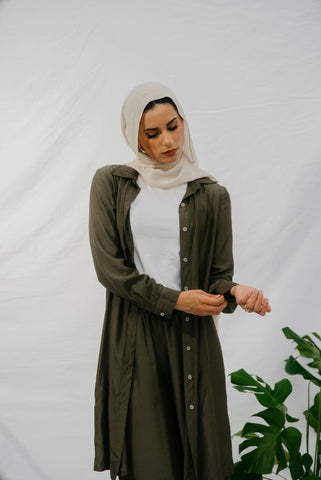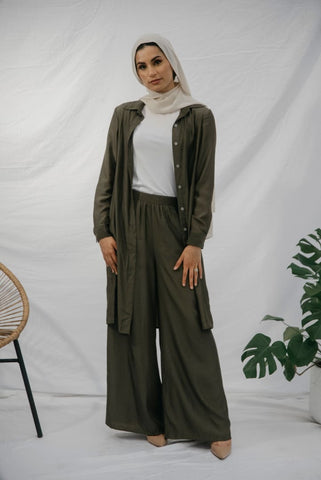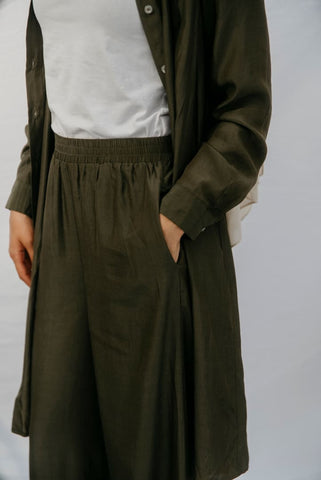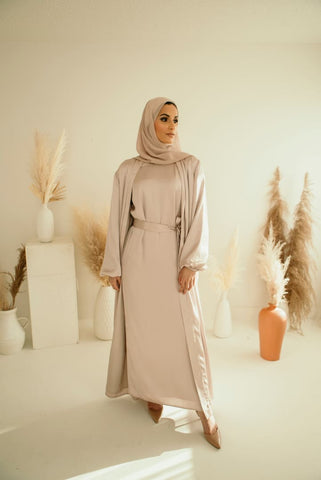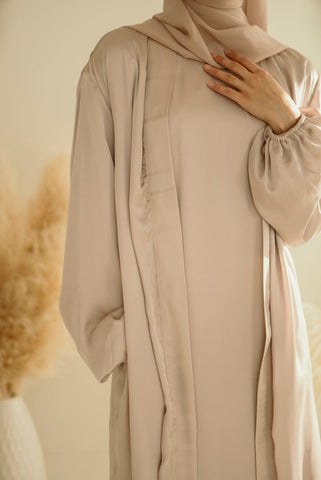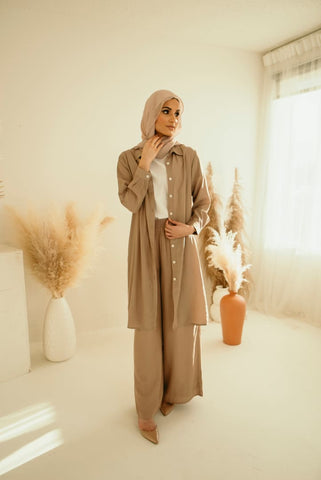Our next piece is named after Fatima Saleh who has two daughters: Bayan (8) and Khadijah (4) with Autism Spectrum Disorder (ASD for short). When asked Fatima what was her initial reaction in regards to her child having a disability was she explained that it was a mixture of uncertainty and relief. They had been hearing the word “Autism” in relation to Bayan for a while before that day and, after many hearing tests, assessments, and early intervention therapies, they finally had an answer to what was actually going on and to why she was constantly crying- that part was the relief. They finally had a reason. The uncertainty settled in soon after. What do they do next? What does the future look like? The diagnosing doctor didn't have answers for them and was warning them that she may never use verbal speech, that she would likely never be independent and would likely always need support for everyday tasks. She did say one thing that Fatima held onto like a lifeline…”she can learn.” Khadijah was different for them because they were able to recognize the signs quite early. She had no verbal words, didn't have “joint attention” skills (bringing objects just to share or experience them together) and she also wasn’t pointing by 12 months. They knew what to expect for her and it didn't come as any shock. We asked Fatima whether or not she was scared, nervous or overwhelmed with the new diagnosis and she explained that those first few days with Bayan were overwhelming as they threw themselves into applying for supports and seeking out information on ASD. They never hid her diagnosis from anyone and were very open about it with family and friends from the start. There is a stigma surrounding “invisible” disabilities, especially in girls with autism since it goes under diagnosed, but also with disabilities in general. Being open about what was happening with Bayan was and is very important to them so that they can break that stigma. Allah SWT willed this for her and they are fully accepting of His will. They had mixed reactions from people. Some were very supportive and understanding. Some were dismissive and downright rude. They heard things like “you shouldn’t tell people she is Autistic..how will she ever get married?” Or “if you just wait a little longer she’ll catch up” or “make duaa and Allah SWT will “fix her.” While she knows no one was intentionally being malicious, the fact remains that Neurodiversity is not a bad thing. It’s different and different can be and is beautiful. Too often we get caught up in the “what will people think” mentality and it stops us from getting support and help for ourselves and our kids. When asked Fatima what are some misunderstandings people have about children with disabilities she explained that misunderstandings about children with disabilities like ASD are that they can’t. Can’t learn. Can’t communicate effectively. Can’t be in a regular classroom. Can’t be successful or graduate. Can’t hold jobs. Can’t get married. Can’t be independent. More and more people are learning about inclusivity and the positive effect it has in our communities. It breeds empathy and understanding and love. And not just for people with disabilities but for everyone. It allows for deeper and more meaningful connections. She has met so many incredible people, mothers, families, educators and friends because of her girls. People she has never had such meaningful connections with if it hadn’t been for their ASD. Bayan had two classmates who befriended her before she was verbal and have continued to grow with her as she’s learned to communicate, first using pictures then using spoken word. They and their families are now some of the closest people to Fatima and her family. We asked Fatima what are some amazing things people may not know about your daughters. She explained that they amaze her every single day. They’ve exceed every expectation placed on them and flourished Mashallah. They are filled with joy and with so much love. Bayan is verbal and learning in her community school support. Khadijah is using AAC (Augmentative and alternative communication), which means she uses an iPad app to communicate. She taps a series of “buttons” and can request and comment, it is incredible. When asked Fatima what advice she would give to new moms going through the same thing she explained that disability is hard. It’s a test that can sometimes make a parent feel like they somehow failed their child, even though they have no control over the situation. No one wants their kid to face any challenges, or hardships, especially lifelong ones and sometimes the load can feel incredibly heavy but her advice would be to find your people. Get help where you can. You do not have to do this alone. There are programs to help you gain access to supports your child deserves so they can have the absolute best quality of life. There are programs to help you take a break. There are family and sibling support groups. Reach out to other families and make those connections. You are not the first family to go through this so learn from those who have experience. Pray. Make Duaa for the ease from the hardships and for the comfort of mind and heart.
What we love about this burgundy cardigan is how luxurious the material is and the way it sits. The great thing about this cardigan is that you can wear it with a collar or it can also be worn as a flat collar as well. The pockets add a great touch as well.
Material Composition
50% Viscose
25% Polyester
25% Polyamide
Size Guide:
Small- Length: 36" Bust: 20" Sleeve Length: 23"
Medium- Length 37" Bust: 22" Sleeve Length: 24"
Large: Length: 38" Bust: 24" Sleeve Length: 25"
Extra Large: 39" Bust: 26" Sleeve Length: 26"
